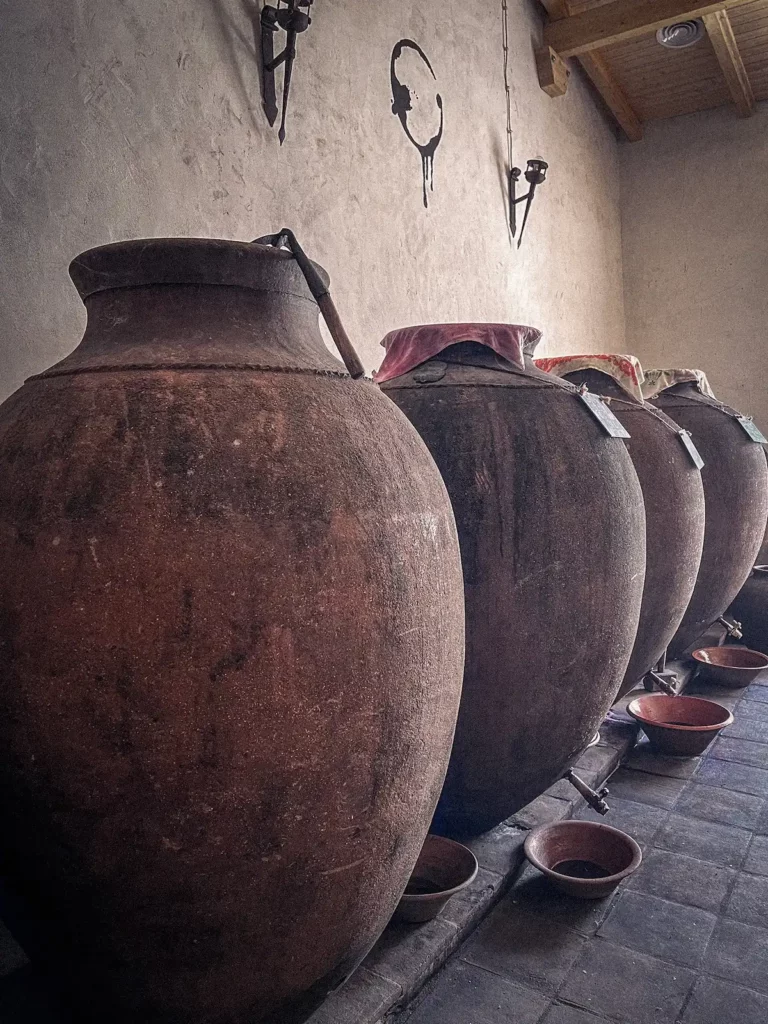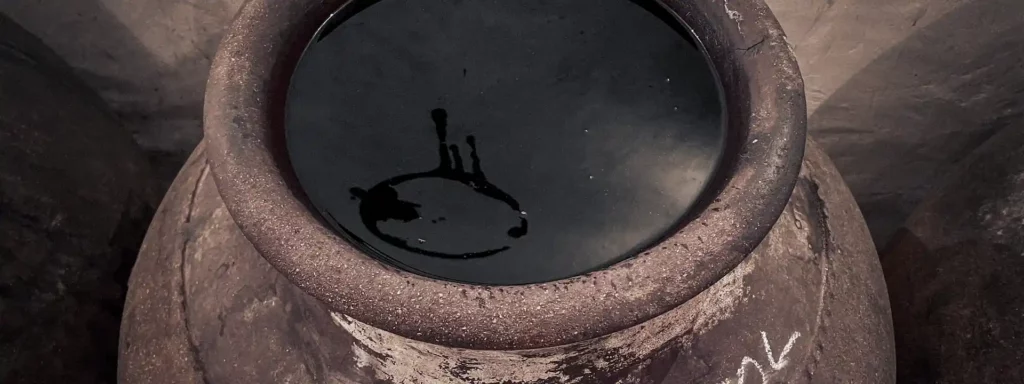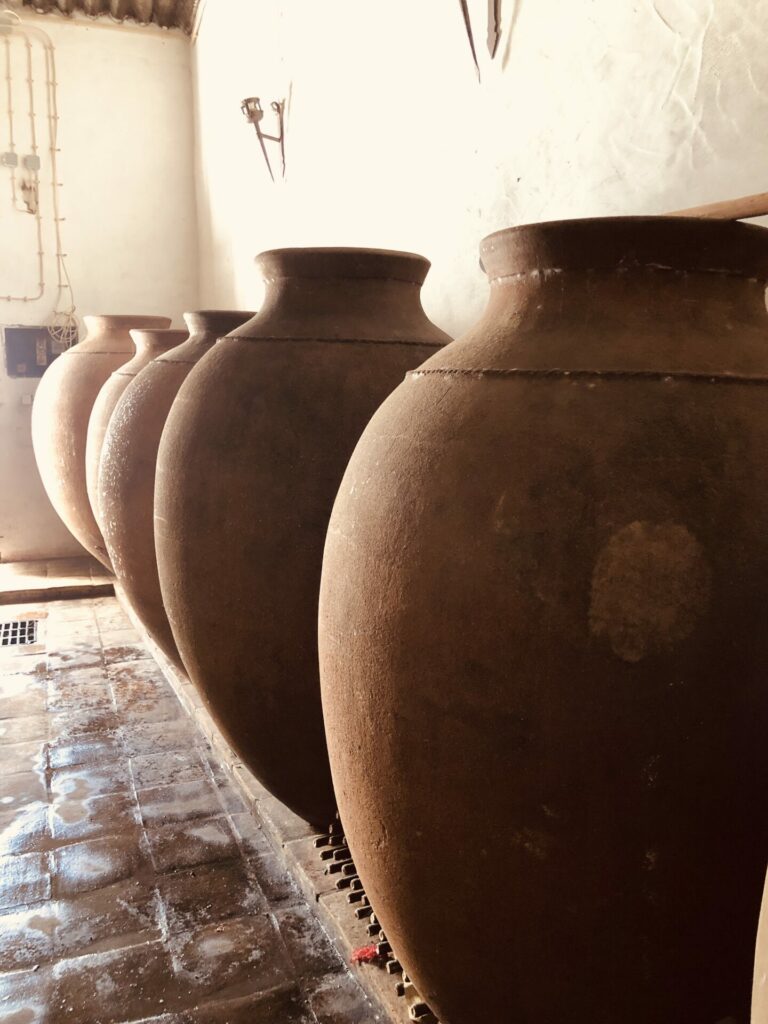The ancient 12
The story of our wines
from the eye of the amphora
The Amphora & the Ancient 12
The AMPHORA
With a deep respect for the past, our amphora-aged wines evoke a sense of timelessness that blends seamlessly with modern tastes and sensibilities, respecting and preserving a natural winemaking technique that is artisanal, sustainable, planet-friendly and natural.
In ancient times, amphoras were often referred to as ‘the mother’ because they were essential vessels for making wine. Amphoras were often decorated with images of goddesses and other powerful female figures, which further emphasized their symbolic association with motherhood and fertility. Overall, the important role that amphoras played in sustaining ancient communities led to their revered status as ‘the mother’.
The design of the amphora is also ideal for wine making. It allows for the natural flow of oxygen during the fermentation process, regulating temperature and promoting healthier, more complex wines.




THE DOLIUM
The dolium is an ancient Latin word for amphoras (talhas in Portuguese). The narrow neck of the amphora helps to prevent over oxidation and spoilage of the wine. Our brand mark is called the Dolium or what we like to call it, the “eye of the amphora”.
THE ANCIENT 12
Alba is steeped in ancient wine traditions and cultural significance. The name “Alba” derives from the Latin word for “white,” which symbolizes the pale hues of some of the most delicate and complex white wines. In Roman mythology and history, Alba was the name of an important city and a beloved name for girls.
Diana was known throughout ancient Roman mythology as the goddess of the hunt and the moon. Her name was often associated with purity and strength, reflecting the character of some of the most robust red wines.
Latitia was a popular name among Roman women, meaning “joy” in Latin. It was a fitting name for a wine that was designed to evoke feelings of happiness and contentment with its smooth, well-balanced flavors.
Fosca was a name given to Roman girls with dark features, and it also means “dark” in Latin. This name lent itself perfectly to the rich, bold flavors of the red wines produced in the region of Fosca.
Alma means “soul” in Latin and was often used as a name for Roman women. The wines crafted in the Alma vineyards were said to possess a deep, rich flavor that touched the soul.
Felicia, meaning “happy” or “fortunate” in Latin, was a name bestowed upon Roman girls who brought joy to those around them. The wines made in the Felicia vineyards were similarly cherished for their ability to bring joy to the palate.
Aurora was the goddess of the dawn in Roman mythology, and her name was associated with the colors of the sunrise. The wines made in the Aurora region were said to possess a subtle, delicate flavor that mirrored the soft hues of the morning sky.
Aelia was a popular name among Roman women, meaning “sunshine” or “light” in Latin. The wines crafted in the Aelia vineyards were said to have a bright, lively flavor that filled the mouth with warmth and light.
Massima was a name given to Roman girls who embodied the qualities of strength and power. The wines made in the Massima region were similarly bold and full-bodied, with a deep, rich flavor that commanded attention.
Salacia was the goddess of saltwater and the wife of Neptune in Roman mythology. The wines crafted in the Salacia vineyards were said to have a unique flavor that was reminiscent of the salty sea air.
Marina means “of the sea” in Latin and was often used as a name for Roman women. The wines made in the Marina vineyards were said to have a crisp, refreshing flavor that mirrored the cool, clear waters of the Mediterranean.
Hilaria meaning “cheerful” or “happy” in Latin, was a name often given to Roman girls who brought joy to those around them. The wines made in the Hilaria vineyards were similarly cherished for their ability to bring happiness to the palate.


